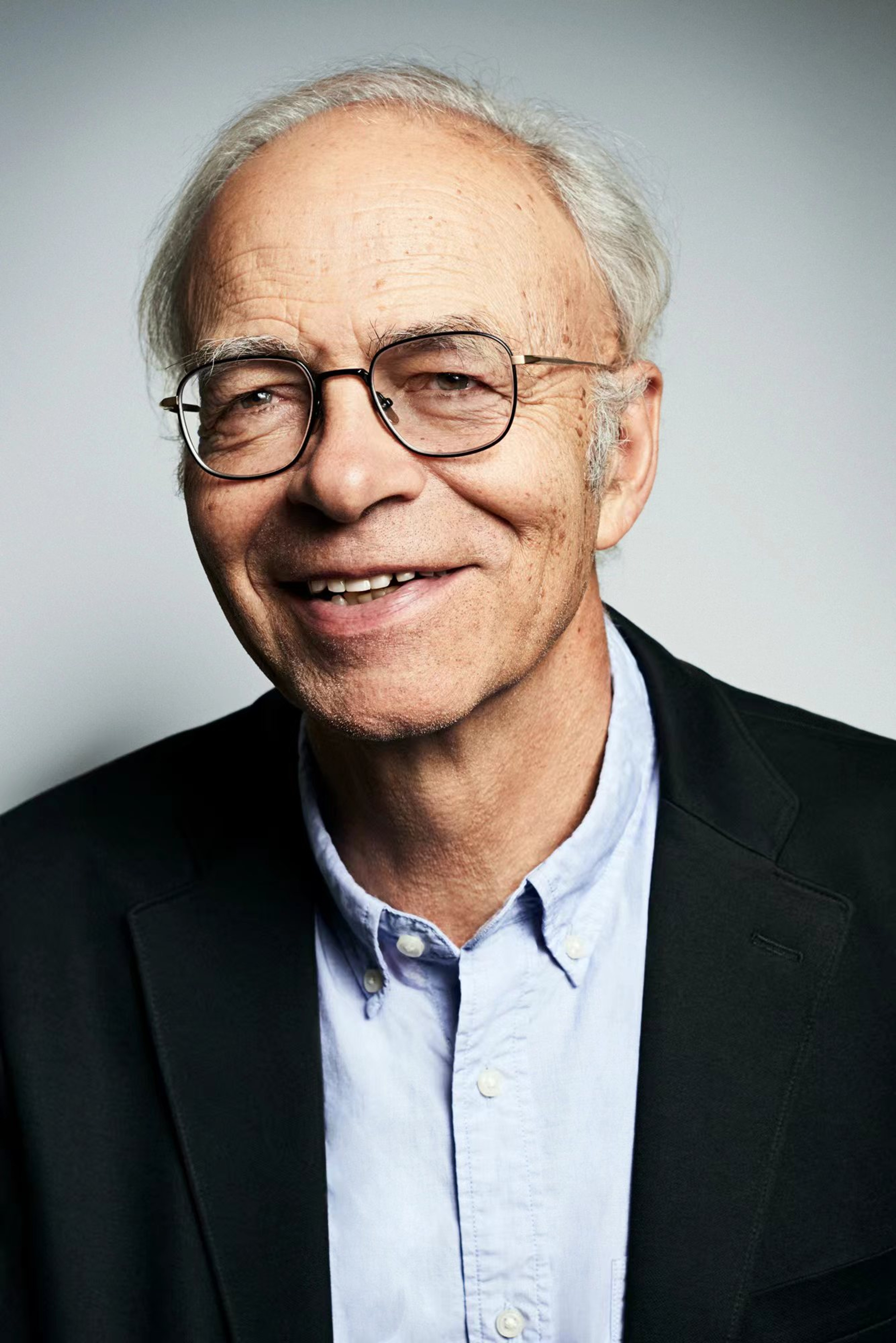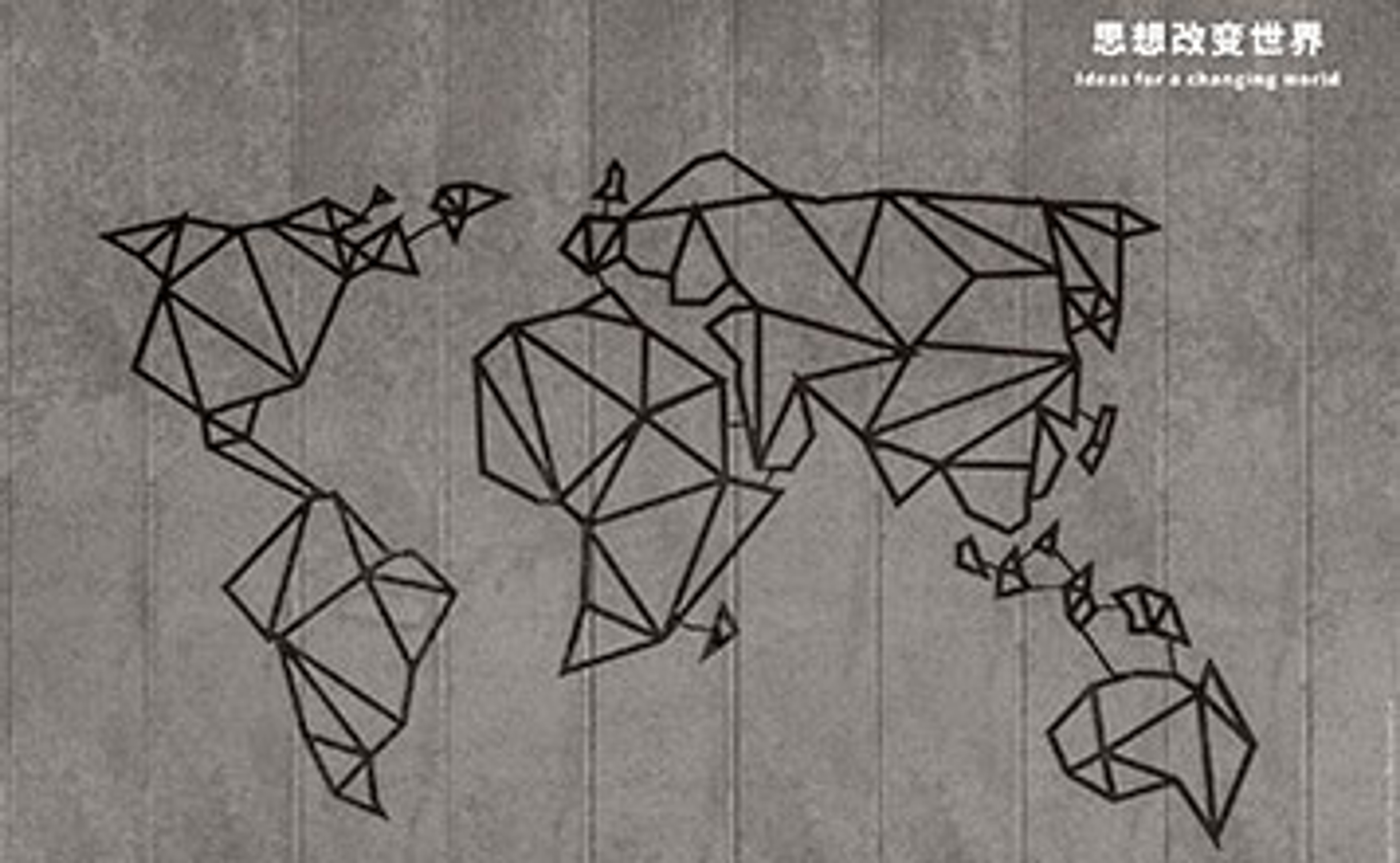In Conversation With Jared Diamond: To Solve a Crisis, We Need to Acknowledge It First
- Date: July 3, 2020
Summary
As part of the Global Thinkers series, Caixin Global and the Berggruen Institute hosted esteemed professor and popular author Jared Diamond in an online event titled “A Dialogue with Jared Diamond: Global Pandemic and Crisis Management.” Contextualizing the challenges of the COVID-19 pandemic, Professor Diamond, who is currently a professor of geography at the University of California in Los Angeles (UCLA), spoke about his book, Upheaval: Turning Points for Nations in Crisis, which offers new understandings and solutions for global problems. In the following discussion with Song Bing (Vice President, Berggruen Institute; Director, Berggruen China Center), moderated by Lin Xin (Vice President, Caixin Media; Managing Director, Caixin Global), Diamond spoke about the interactions between institutions, histories, cultures, and values and how that interplay shapes the unique trajectories of national responses to crises. Ultimately, he imparted a message of assurance, “from the ashes of tragedy, optimism can persevere.”
Diamond is primarily known for his best-selling books depicting the evolutions and characterizations of human societies: Guns, Germs, and Steel; Collapse; Why Is Sex Fun?; The Third Chimpanzee; The World until Yesterday; and most recently, Upheaval: Turning Points for Nations in Crisis. These books, described by Song Bing as both “timely and timeless,” and have been translated into 38 languages, impacting readers worldwide and establishing Diamond as a leading voice in the study of civilizations. But Diamond has had a career path that is anything but linear.
As Bing remarked, Diamond has led many lives in one, excelling in a wide range of fields spanning physiology, geography, history, and biology. In the nascence of his academic career, he was awarded a PhD for his work on the physiology and biophysics of membranes in the gallbladder and his professional trajectory seemed poised to follow. According to Diamond, the turning point of his career was the birth of his twin sons and his subsequent realization that their futures would depend not on the study of the gallbladder but on the meditation of history and geography at a global scale.
In Chinese, the phrase gūdǎn yīngxióng (孤膽英雄), translated literally as “single gallbladder hero,” is associated with heroism and courage. Diamond’s transitioning intellectual pursuits–from his early physiological and biological studies to his most recent work on the decision making of nation states in crisis–aptly reflect this anecdote. In a world where the academic profession favors the specialist over the generalist, Diamond has bravely resisted the norm, instead teaching readers to pursue an interdisciplinary understanding of the world in which they live.
– – –
Professor Diamond opened his talk with a comparison between personal and national crises, and the reactive behavior these respective crises evoke. Inspired by his wife Maria’s work as a psychotherapist, Diamond noticed the commonalities between the outcome predictors of successfully fixing problems within individuals and societies, which he captured in five criteria for successful crisis resolution. The first criterion, Diamond argued, is the truism that before one can make things right, one must accept something is wrong. Secondly, nations, like individuals, must be honest and objective with themselves and others. Thirdly, taking responsibility for the cause of crisis is a prerequisite to recovery; blaming others is not conducive to crisis management.
Diamond pointed to Germany’s disparate responses after WWI and WWII as case studies. After WWI, Germany absolved itself of responsibility by blaming its defeat on backstabbing enemies and disloyal citizenry, which ultimately gave rise to the conditions that led to another world war. In contrast, accepting responsibility at the end of WWII in 1945 allowed Germany to learn from its previous crises, recover, and become the powerful, collaborative European nation it is today.
Such collaboration is the crux of Diamond’s fourth principle—to seek help from others and use their experiences as models for solutions to one’s own problems. While each nation’s history is unique, Diamond acknowledges, countries can use collective experience and shared memory of previous crises to render effective solutions in the present.
Diamond’s fifth and final criterion for successful resolution is to selectively change, to alter some but not all national characteristics in the wake of a crisis. Using Japan as an example, Diamond highlighted how, following contact with the West in 1853, the simultaneous preservation of tradition and culture—such as the existence of an emperor and the use of the kanji writing system—and the pursuit of Western-style modernization of governance, trade, and technology allowed the country to thrive in the late 19th century. As with Japan, the maintenance of a “mosaic identity,” Diamond noted, may be applicable to China’s own transition to modernity.
– – –
Following his comparisons of successful crisis resolutions on individual and national levels, Professor Diamond discussed how to respond to crises that extend on an all-encompassing global scale, like the coronavirus pandemic. He considers COVID-19 to be the first truly acknowledged global problem, as opposed to previously existing localized crises that have been situated at personal, national, or regional levels. COVID-19 cannot be eliminated through isolated responses from individual countries, Diamond argued, because even when one country eliminates the virus the risk of reimporting it remains. The unique nature of a global crisis, driven not by war or famine but by an infectious pandemic, means no country is safe until every country cooperates.
Diamond considers why COVID-19 has been characterized as the first global problem to require a global solution when equally pressing global issues such as climate change, nuclear risk, and resource depletion have not received the same degree of worldwide attention. He stated that the nature of the risk from COVID-19 drives two important differences into focus: the clear assignment of effects to the virus and the timeliness of the virus’s consequences. If an individual dies from COVID-19, identifying the virus as the cause of death is difficult to dispute. Conversely, attributing an individual’s death to the cumulative, long term, and less visibly direct effects of climate change is more difficult to prove. Additionally, from the point of contracting COVID-19, the onset of adverse health outcomes and, ultimately, death occurs over a compressed timeline of a few weeks. This timeline is easier for society to grasp than the drawn out, insidious risks of climate change, which may not overtly affect the current population but will surely be seen and felt by future generations as more time passes and effects compound. In the case of the nuclear weapons crisis, the global community has fortunately agreed upon a global moratorium which has led to a degree of security, while, in contrast, the porous transmissibility of COVID-19 has been met with belated and often contrasting responses from nations. Still, Diamond concluded his remarks on an optimistic note, believing that a “happy consequence” of the COVID-19 pandemic could be the first real united and coordinated global action against a common problem.
– – –
The follow-up discussion between Diamond, Bing, and Xin delved into the lack of uniformity in the global response to the COVID-19 pandemic, despite its clearly global nature. The heterogeneity of country-specific strategies, they asserted, is borne of underlying differences in historical and cultural experiences. When asked how he would classify the differences between the American, European, and Chinese responses to the current pandemic, Diamond replied that delineating approaches along these axes is not possible.
The United States (US) alone has at least 50 different approaches tied to each of its composite states, of which the local governments possess a considerable degree of further autonomy. The localized power and ability to independently assess and address the pandemic has been reflected corresponding outcomes as some states, like Diamond’s own state of California, responded to the threat of the virus promptly by enforcing an organized, coordinated lockdown which saved lives while governors of other states including Florida, Texas, and Mississippi have refused to acknowledge the crisis and still reject responsibility for rapidly rising infection rates. Even California, who once led the nation in lowering cases, has reopened too soon as citizens seeing the lack of distancing measures in other states rejected the lockdown at home. Without a uniform Federal response to unite the country, the number of cases has skyrocketed.
Similarly, the 48 nations of Europe also display differences in their chosen responses to the crisis of COVID-19. In weighing their own risks and rewards, Sweden opted for minimal changes to daily life, resisting a nationwide lockdown to maintain personal freedoms in the name of “herd immunity;” meanwhile, the UK led by Boris Johnson was slow to adopt selective change, a delay that costed lives. At the other end of the spectrum of reactions, Diamond considers Germany’s response led by Angela Merkel to be a successful, responsible, and acknowledging approach with their widespread testing and strict social distancing measures.
In his book, Diamond analyzes Finland, where he lived for a period, and its navigation of the threat of Soviet Union invasion to ultimately thrive in the late 20th century. What Finland importantly demonstrates in the context of COVID-19, he argues, is how a distinctly experienced history shapes the present. As Diamond explains, influenced by scars of its past in dealing with trade embargos, Finland has a national committee that meets every month to discuss preparations for the next hypothetical crisis. Informed by the experience of living without trade, Finland consistently prepares against a repeat experience by stockpiling wheat, fuel, medicine, chemicals, and even facemasks. Preparations for the future built on experiences of the past has made Finland resilient in the face of the current global crisis that caught most nations unaware.
– – –
Just as history shapes the present, deeply rooted cultural systems also dictate the way in which countries respond to the crisis. Western journalists have predominately focused on state capacity and compulsion as the foundations of China’s COVID-19 response. However, Bing advocates for an alternative “grassroots” view. She believes that cultural values are crucial to understanding how Chinese citizens’ behavior as a collective societal force during the crisis magnified the national response to levels greater than state influence alone. Citing what she calls the “family-state nexus,” Bing advises against underestimating the level of cooperation by ordinary people in a culture where collective well-being is strongly prioritized over individual liberties.
The responsibility of the individual as just one part of the collective whole has also shaped successful societal responses to the COVID-19 pandemic in other East Asian countries, for instance, South Korea. The receptivity of the national response to cultural influence was discussed by Bing in regard to Diamond’s criteria for successful crisis resolution. In Eastern societies influenced by the teachings of Confucianism, Daoism, and Buddhism, personal morality building is intrinsically linked to society building, and societal moral decay is a result of individual moral decay. According to these traditional philosophies, Bing believes that how a nation deals with a crisis is simply a reflection of how its citizens deal with crisis a view that mirrors Diamond’s own comparisons between the individual and the nation.
In the US, the individual is less tied to their community, and cultural connections and a sense of unity are weaker. Diamond attributes this lack of collectivism to geography and history, pointing out that the US is five times less densely populated than China, and that in terms of history the US began its status as a nation fairly recently on a frontier expanding from the East to West coast—an experience very different than China’s societal continuity from an ancient civilization. In response to Song Bing’s line of inquiry concerning the lack of discussion around these cultural systems in his book Guns, Germs and Steel, Diamond stated that culture can never be concisely distilled but will nonetheless continue to influence personal and national responses to crises in complex interactions with society, the economy, and the environment.
COVID-19 is not the first crisis faced by our societies, nor will it be the last. Other storms loom on the horizon, from climate change, resource depletion, and nuclear war to the advent of emerging technologies, which Diamond sees as a threat to human society. Reflecting on his time spent researching in New Guinea, Diamond presents the example of a traditional society with stone tools, no writing system, and no central government. In this society, all communication is face-to-face, where both parties see, hear, and feel each other’s body language. In 21st century societies, information conduits have been rapidly and extensively digitalized, with the advantage of communication not limited to physical distance. Yet, the reward is not without risk: both Diamond and Bing share concern over how technology will change the ways in which we communicate with one another, potentially causing a breakdown of trust and the disintegration of societal bonds.
The inevitability of future crises is unavoidable, but Diamond remains optimistic that the current pandemic will serve as a convincing teacher of the benefits of cooperation in crisis resolution. The nature of a viral pandemic enforces an inherent degree of entanglement concerning the risks of individual nations, and this mutual dependency has instigated an unprecedented degree of global coordination. And in the same way airplanes and ships can carry the virus across borders, air pollutants, fossil fuel emissions, and even nuclear fallout can travel by air or sea. Instead of ignoring these future problems, Diamond advocates for an equivalent level of global attention to them as has been to COVID-19.
The key question remains: how do we get people to recognize looming global risks sooner? Diamond ascribes some responsibility to leaders, who must shoulder the responsibility to protect their citizens against future crises. Acknowledging and accepting crises is essential for a successful top-down approach. The individual, he continues, can also reflect from the bottom-up on the fragility and intersectionality of our current global system. In the same way that no nation is free of COVID-19 until every nation is, individuals must recognize the importance of understanding that one nation’s future problems are, by definition, global problems. And where can one develop this understanding? Well, Diamond thinks reading his books is a good start.
The COVID-19 pandemic continues to ravage the world, and will likely coexist with mankind for a long time. The pandemic has induced a global economic slowdown and dramatic rise in unemployment and has triggered a deep economic recession and social unrest in various countries. Jared Diamond, member of the U.S. National Academy of Sciences and author of global best-sellers Guns, Germs, and Steel: The Fates of Human Societies and Upheaval: Turning Points for Nations in Crisis, will meet with Chinese readers to discuss the global risks and opportunities brought by the COVID-19 pandemic, and explore potential pathways out of this predicament.
Discussion Topics:
• How should we evaluate response mechanisms to the COVID-19 pandemic implemented by different countries?
• How should we understand similarities and differences between the institutions, cultures, and values behind the various countermeasures?
• What selective changes could we make to the global governance system to manage current and future crises?
Partners
Co-hosted by Caixin Global
Caixin Global (www.caixinglobal.com) is a leading provider of independent and professional news and information from China. Our high-level event platform—Caixin Roundtable Live—invites top experts to share insights from their respective fields. Our audiences include business leaders, government officials, financial professionals, industry experts, and academic leaders from around the world.
Links to previous events: https://www.caixinglobal.com/events/
Douyin, live stream media platform
Sogou, exclusive machine translation partner
CITIC Press Group, promotion partner
Speaker Bios
Jared Diamond
Jared Diamond is a Pulitzer-prize-winning author of five best-selling books, translated into 38 languages, about human societies and human evolution: Guns, Germs, and Steel, Collapse, Why Is Sex Fun?, The Third Chimpanzee, and The World until Yesterday. As a professor of geography at the University of California at Los Angeles, he is known for his breadth of interests, which involves conducting research and teaching in three other fields: the biology of New Guinea birds, digestive physiology, and conservation biology. His prizes and honors include the U.S. National Medal of Science, the Pulitzer Prize for Non-fiction, the Tyler Prize for Environmental Science, and election to the U.S. National Academy of Sciences. He is a director of World Wildlife Fund/U.S. and of Conservation International. As a biological explorer, his most widely publicized finding was his rediscovery, at the top of New Guinea’s remote Foja Mountains, of the long-lost Golden-fronted Bowerbird, previously known only from four specimens found in a Paris feather shop in 1895.
Song Bing
Song Bing is Vice President of the Berggruen Institute and Director of the Institute’s China Centre. She also sits on the editorial board of the online journal Noema. She writes opinion pieces, op-eds, and short essays for journals including the Washington Post, Caixin Global, and Noema. Recently, Song edited the book Wisdom and Intelligence: AI Meets Chinese Philosophers (published by Citic Press Group, February 2020), representing the first systematic endeavour by Chinese philosophers of Confucianism, Daoism, and Buddhism to address challenges and opportunities posed by frontier technologies such as artificial intelligence and robotics.
Li Xin
Li Xin is the Vice President of Caixin Media and Managing Director of Caixin Global, leading the company’s global news and intelligence services, as well as Caixin’s international branding and events. Before Caixin, she was the Managing Editor of the Chinese Wall Street Journal and Chinese Dow Jones newswire. This is her second stint at Caixin, where she was formerly the Managing Editor of Caixin English magazine. In 2006, she founded Caijing Magazine’s first bureau in the United States, as a correspondent of politics and economics. Li Xin is an Aspen China Fellow and a member of the Aspen Global Leadership Network, as well as a member of International Media Council at the World Economic Forum. She is an avid pubic speaker, moderated panels at international conferences such as the World Economic Forum, DLD and Caixin Summit, on topics of China’s economy and finance, data privacy, AI, and women leadership, and spoke on journalism, China’s economic growth and overseas investment at conferences at Oxford University and Global Editor’s Network.



